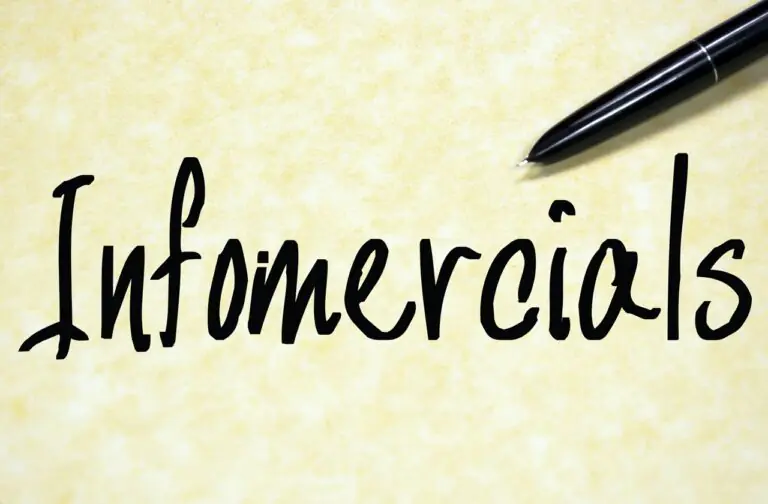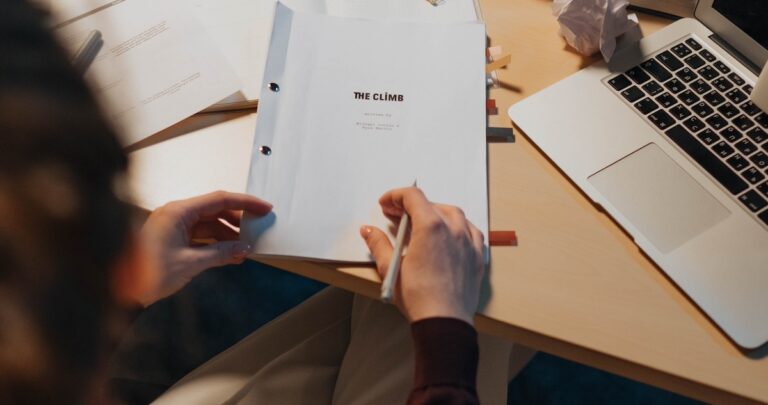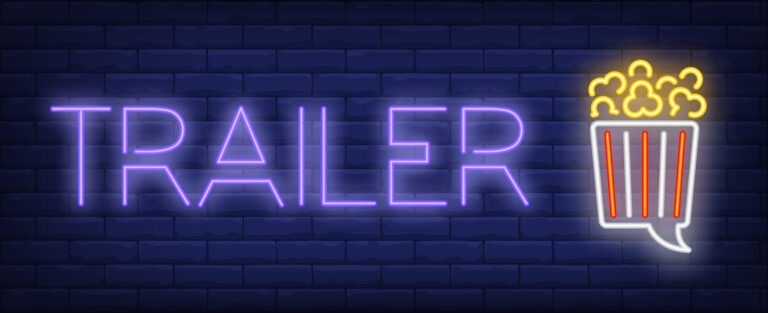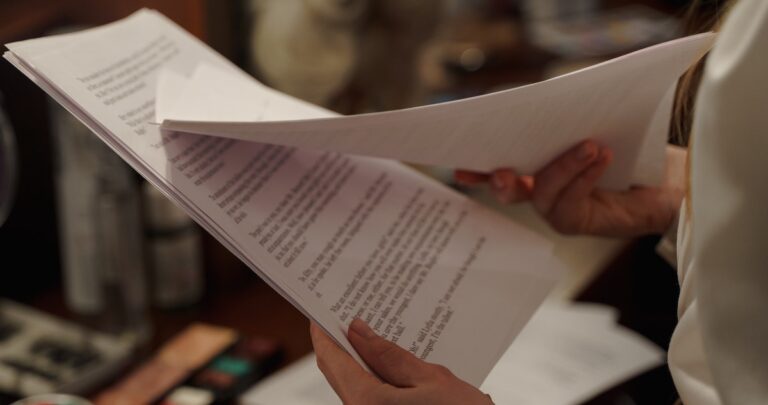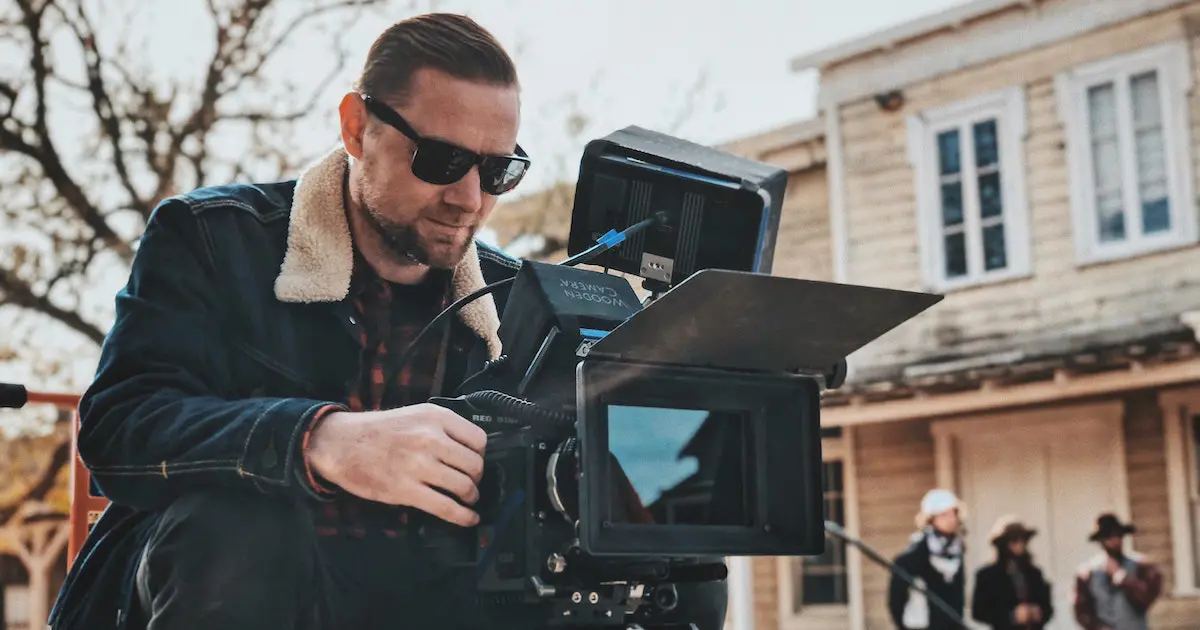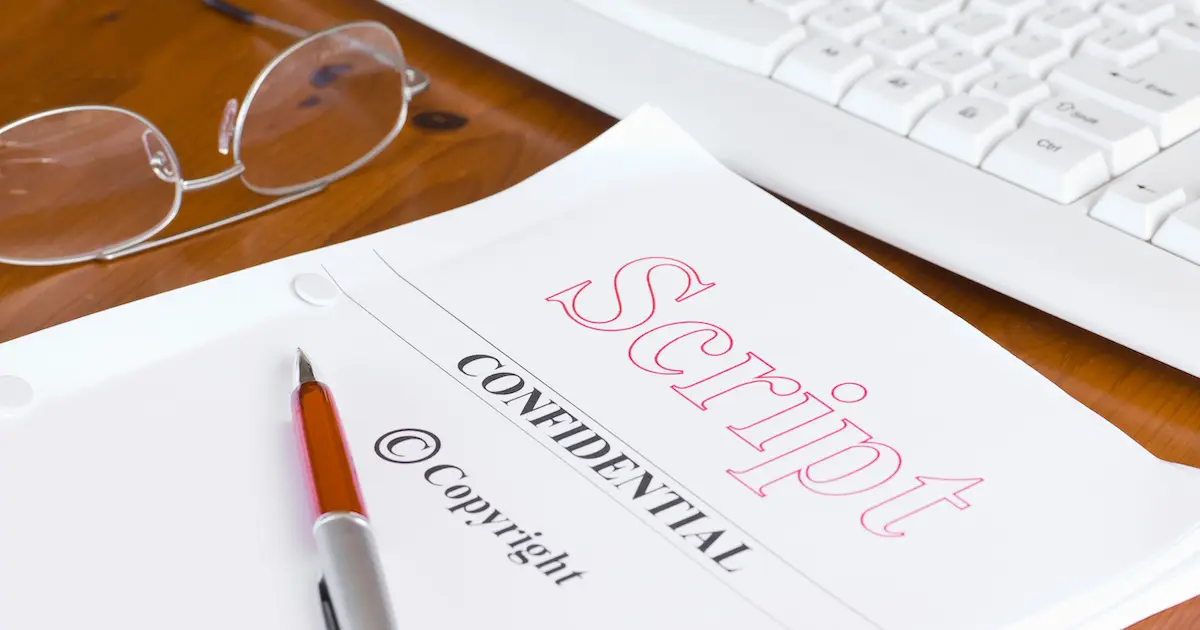Create a documentary script that stands out from the crowd with our free voice over script resources. Explore our collection of documentary scripts and formats right here! As a vocal authority, Voice123 is bringing you the latest creative inspiration for successful documentary scripts in 2023. Let’s dive in!
What are documentary scripts
Documentary scripts are detailed outlines that contain the documentary’s plot, characters, setting, and the voice over narrative. Documentary scripts fall under long-form content because they can range from a few seconds to over two hours for some TV documentaries. Documentaries’ scripts also outline the specific vocal style and tone required so the voice actors know what skills to use to bring the documentary to life. For example, the March of the Penguins documentary script perfectly tied Morgan Freeman’s voice over to the stunning footage and created a work of art that won an Academy Award for Best Documentary.
Documentaries scripts samples

Documentaries scripts samples are templates used to write documentaries to summarize the plot, characters, structure, and narrative and provide delivery notes and samples to the voice actors.
Here are some examples of fictional documentary scripts in 60, 30, and 15-second spots. These scripts follow a clear format with the vital guideline the voice actors will use in their performance. Some of the key points are: voice gender and age, direction notes, tone and style, and similar character voices like David Attenborough or Peter Coyote.
60-second documentary script example
Documentary Name: The Reign of a King
Target Audience: All ages
Voice Gender/Age: No specific gender/middle-aged to mature
Direction Notes: The reading pace should be slow to normal to ensure that the content is easily understood. We want a voice actor to narrate the life story of a lion. We’re looking for a David Attenborough vocal style that’s deep, authoritative, and passionate to give the documentary a sense of awe.
Dialogue Script:
“Dawn breaks across the plains of the Serengeti, bathing it in a soft light that makes the landscape seem almost ethereal. The shrill sounds of birds, insects, and other wildlife, fill the air.”
“They have all emerged for the same reason – the dry season has ended. There is life once again.”
“Elsewhere, the king of one of the largest lion prides in the Serengeti has also awakened. He has successfully brought his pride through one of the worst dry seasons in history.”
“But that is not the end of his troubles, nor is it just the beginning. This is a story of survival, endurance, hardship, and family. This is the reign of a king.”
30-second documentary script
Documentary Name: The Big Picture
Target Audience: All ages
Voice Gender/Age: No specific gender or age
Direction Notes: The reading pace should be normal and fluent. We want the overall tone to be warm and informative so viewers can learn about our film production company. We want a narrator with a Peter Coyote vocal style that’s confident and engaging.
Dialogue Script:
“Entertainment isn’t just a job for us or even a form of art. It’s a passion that we’ve dedicated ourselves to since 1975.”
“Our goal is to create masterpieces that will inspire audiences for generations to come. We’ve been privileged to have a share in producing iconic films that shaped the entertainment industry”
“None of this would be possible without our brilliant production team, who work tirelessly to ensure that our content is the best it can be.”
“But our road to success has also been full of challenges. So come with us, and we’ll share our story with you.”
15-second documentary script
Documentary Name: The Frontlines
Target Audience: All ages
Voice Gender/Age: No specific gender or age
Direction Notes: The reading pace should be normal and fluent. We want a voice over for a documentary showcasing humanitarian aid in countries affected by disasters. We want a narrator with a Sigourney Weaver vocal style that’s heartfelt with an emotional timbre to invoke empathy while spreading awareness.
Dialogue Script:
“There was no time to flee; the earthquake hit without warning. In just a few seconds, the entire city was flattened.”
“The humanitarian workers had boots on the ground in just a few hours. They were the only ones who were prepared for a disaster on this scale.”
“In the coming months, thousands of lives were saved, and communities were rebuilt from the ashes.”
“These are the stories from the frontlines.”
Documentaries scripts format
Documentaries scripts formats follow a typical structure of the project name or description, the target audience, voice gender or age, and direction notes to the voice actor explaining the reading pace, the vocal style, tone, and examples of similar voices. The script format also outlines the overall plot and a sample of the narrative the voice actor will record. Documentary scripts are usually written in a dual-column template. You can write the script in one column and the time codes of the corresponding video sequences in the other. This format allows you to include the direction notes and other necessary descriptions.
How to write documentary scripts
You can write documentary scripts by following this four-step process, 1) choose a documentary type, 2) research the concept, 3) develop a plot, and 4) write the narrative. Here’s more on each aspect.
1. Choose a documentary type
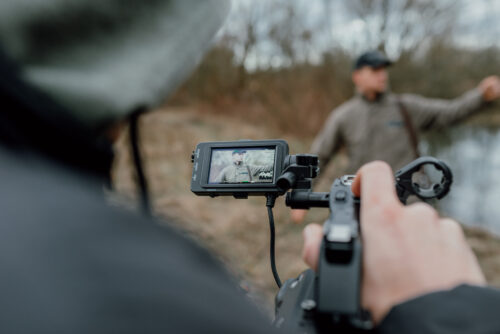
What type of documentary are you making, and what are the main ideas of your documentary scripts? Is it a corporate documentary to advertise your company and its products, like the Starbucks Rebuilding Memories documentary? Or are you telling the real story of a person or organization like Super League: War for Football, which takes a behind-the-scenes look at breakaway soccer leagues? Once you’ve decided on the type of documentary, draft a general plot that includes the story, characters, and narrative.
2. Research the concept
With documentaries scripts, accurate facts and information are vital. So start by doing a deep dive into the story and characters. Read any books or articles that have been published on the subject, or speak to eyewitnesses and experts who can help fact-check your information. You can even include their statements as interviews to add credibility and emotion to your documentary, like The Rescue. This documentary tells the moving story of how twelve children and their coach were rescued from a cave in Thailand through eyewitness accounts and interviews.
3. Develop the plot
Now you can go back to your original concept and add the new details from your research to the documentary scripts. The script needs a scene-setter, an explanatory section, and a conclusion to wrap everything up. You probably won’t be able to use every fact you find, so select the ones that have the most emotional value that will captivate your audience. For example, the Blackfish documentary on orcas at the SeaWorld aquarium uses more interviews with people instead of biological facts to highlight animal abuse in a way that invokes emotions.
4. Write the narrative
The narrative brings your plot, research, and characters to life, but in some cases, you might have to write the narrative using the supplied stock and interview footage. In that case, structure the information around any interviews and use the footage to inspire your content. An example of this is the Secrets of the Elephants documentary. This documentary uses unique storytelling and Natalie Portman’s mesmerizing voice over to cast a new light on these well-known animals. So keep your narrative sincere and let the truth speak for itself. Then head on over to Voice123 to find the best voice to bring your hard work to life.
Final thoughts on documentary scripts

Documentaries scripts are powerful tools that can raise awareness, inspire audiences, and showcase what your company stands for. So start by choosing a documentary type that suits your content, conduct research to get accurate facts, and develop the plot by sifting through the details to find information that brings your story to life. Finally, bring your plot, characters, and storyline together by writing a narrative that’s heartfelt and genuine. And to make your documentary even more striking, you can use a talented voice actor from Voice123.
Because if you need the next David Attenborough or Morgan Freeman, just type their names in when you search for a voice actor, or you can receive customized options and streamlined payments from our Managed Services.
FAQs on documentary scripts
A documentary script is a blueprint that contains the plot, characters, structure, and narrative of the documentary, and it guides the production team and voice actors to create a captivating and engaging documentary.
To write a script for a documentary, identify the type of documentary – like biographical, corporate, or expository – then conduct research to develop the plot further and tie all the information and events together with a compelling narrative.
The most famous documentary voice actors are David Attenborough, Jacques Cousteau, Morgan Freeman, Meryl Streep, and Sigourney Weaver.



